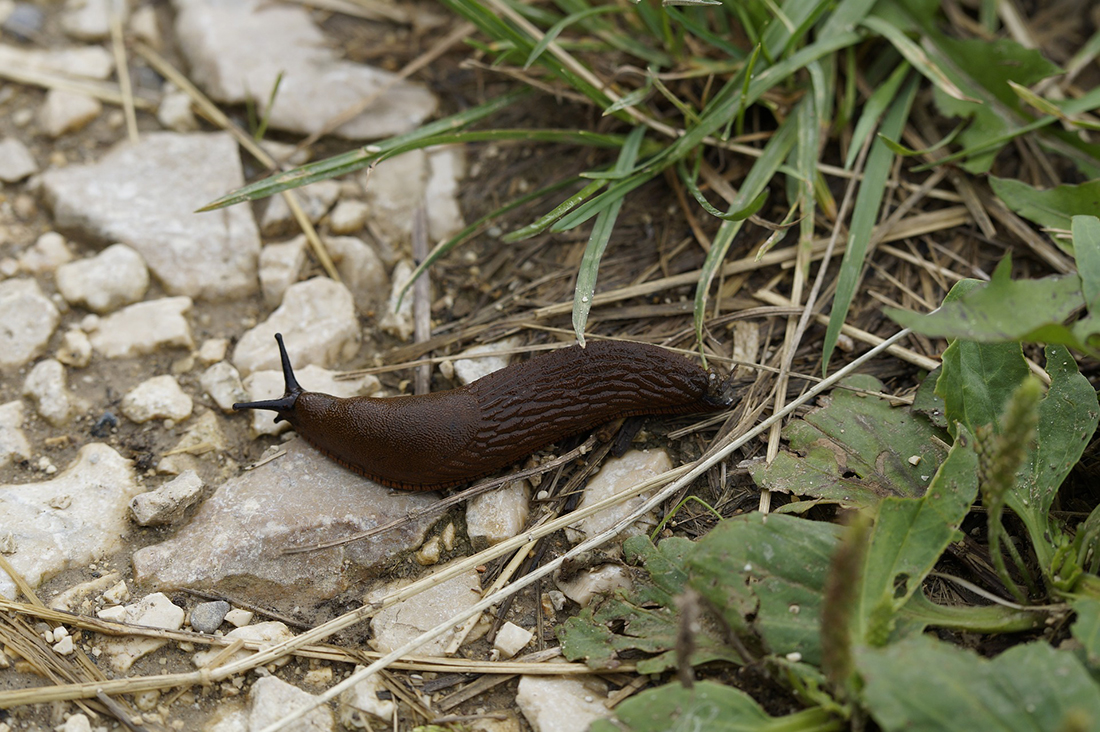Springtime gardening here in the Pacific Northwest is quite dreamy. Lush green vegetation, flower buds swelling with promise, and delicious early season veggies bring many visitors into the garden including those of the unwanted variety such as the dreaded slug and snail. Nothing is more ubiquitous than snails and slugs that munch on your growing plants. They can be hard to control, as they hide very effectively under garden debris and anything lying around the yard that provides dark, moist, and cool conditions: debris, boards, plastic containers, etc. Fear not, gardeners have a safe way to defend against these hungry gastropods by using one of our most popular solutions to a messy problem!
Approved for organic gardening, Sluggo contains iron phosphate, a naturally occurring soil compound that is safe to use around pets and wildlife while being irresistible to slugs and snails. When eaten, iron phosphate causes slugs and snails to cease feeding and yes, meet their demise. It remains effective after rain showers and consistent watering. It can also be used up to the day of harvest on vegetables and is a must have in any home gardener’s tool box of organic pest control.
Since slugs and snails often crawl the path of least resistance, other methods include a barrier spread of crushed oyster shell or diatomaceous earth that, when crossed over, create tiny cuts causing them to dehydrate and pass away. Copper stripping or mesh is another efficient way to keep slugs and snails out of raised beds or off new seedlings- the copper reacts with their secretions, causing an unpleasant sensation.
Shallow pans of beer used as a trap can also work well since these critters can’t seem to resist the yeasty smell and taste, but fall in and drown when attempting a sip. Beer traps, while effective can also be messy, expensive and smelly to deal with. Slugs and snails are a fact of life for gardeners here in the Pacific Northwest, but with a little diligence and creativity you do not have to sit idly by while they snack on your garden.

